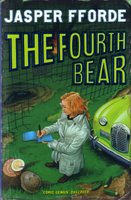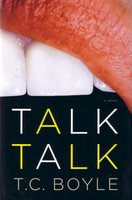I should feel bad, I know. I haven't posted to this site in weeks. And I would feel bad if I weren’t so far behind in my reading that I can’t seriously considering blogging. Vacation (three baseball games in three days in three states), a temporary re-location (from
Washington to
Chicago) and new work responsibilities have taken its toll. I normally read a minimum of 100 pages a day, yet when I look at my book list I finished James Lee Burke’s
Pegasus Descending on August 3
rd and its taken until the 24
th to finish another novel. I’ll address that novel soon, but until then I have three blurbs for three books.
74. Pegasus Descending, James Lee Burke. Fiction, 8-3, p. 356
 This won’t be well received, but I’m going to write it any way. I’m giving up on James Lee Burke. I think his novels have become derivative . . . of James Lee Burke. Reading his newest novel I have the distinct sense that I’ve read it all before. It seems lately that Burke takes the same characters, scenes, settings, even phrases, tosses them into the blender of his word processor and a new novel emerges. I think I’m even more disappointed that his main character, Dave Robicheaux, never changes. Dave is supposed to be a smart guy, but he keeps repeating the same mistakes from book to book to book. Dave and the novels he appears in have become tiresome, formulaic and disappointing.
This won’t be well received, but I’m going to write it any way. I’m giving up on James Lee Burke. I think his novels have become derivative . . . of James Lee Burke. Reading his newest novel I have the distinct sense that I’ve read it all before. It seems lately that Burke takes the same characters, scenes, settings, even phrases, tosses them into the blender of his word processor and a new novel emerges. I think I’m even more disappointed that his main character, Dave Robicheaux, never changes. Dave is supposed to be a smart guy, but he keeps repeating the same mistakes from book to book to book. Dave and the novels he appears in have become tiresome, formulaic and disappointing.
75. Francis Crick Discoverer of the Genetic Code, Matt Ridley. Biography, 8-3, p. 210
 HarperColllins’ Eminent Lives series – a collection of brief biographies of a diverse group of notables – is a worthy successor to the Penguin Lives series. Matt Ridley’s biography of Francis Crick is an entertaining and informative read. Crick is an interesting figure, notable, if for no other reason, in that he was brilliant without being eccentric. As with any book about science or math (at least for me), the particulars challenge my comprehension, yet it is amazing how much of DNA and its components – the double helix, the sequence of the amino acid residues in proteins, the four types of nucleotides (adenine, cytosine, guanine and thymine) – are remotely familiar.
HarperColllins’ Eminent Lives series – a collection of brief biographies of a diverse group of notables – is a worthy successor to the Penguin Lives series. Matt Ridley’s biography of Francis Crick is an entertaining and informative read. Crick is an interesting figure, notable, if for no other reason, in that he was brilliant without being eccentric. As with any book about science or math (at least for me), the particulars challenge my comprehension, yet it is amazing how much of DNA and its components – the double helix, the sequence of the amino acid residues in proteins, the four types of nucleotides (adenine, cytosine, guanine and thymine) – are remotely familiar.
76. Positively Fifth Street, James McManus. Poker, 8-16, p. 385
 James McManus’ highly entertaining Positively Fifth Street is a minor classic in the small, but fascinating genre of books devoted to poker. McManus wrote his book just before the sport(?) became a cultural phenomenon due to ESPN’s broadcast of the World Series of Poker. McManus went to Vegas to write an article for Harper’s magazine on the Ted Binion murder trial (of Binion's Horseshoe Casino fame) and the recent success of women in what had been an exclusive all-male club. A gambler at heart (“the heart of a cliff diver”), McManus blows part of his advance from Harper’s on a qualifying tournament for the WSOP. He not only qualifies for the WSOP, but reaches the final table; a stunning accomplishment for an amateur player. In addition to his coverage of the murder trial and a riveting account of his tournament play, McManus ponders his justification for a lap dance (research) and the psychological and emotional motivations of the gambler. Let’s just you can equate risk with sexual excitement, losing with sexual excitement, winning with sexual excitement and sexual excitement with, well, cards, chips and nubile, young lap dancers. Masturbation plays a role in there somewhere, too. Just read the book – it’s the nuts.
James McManus’ highly entertaining Positively Fifth Street is a minor classic in the small, but fascinating genre of books devoted to poker. McManus wrote his book just before the sport(?) became a cultural phenomenon due to ESPN’s broadcast of the World Series of Poker. McManus went to Vegas to write an article for Harper’s magazine on the Ted Binion murder trial (of Binion's Horseshoe Casino fame) and the recent success of women in what had been an exclusive all-male club. A gambler at heart (“the heart of a cliff diver”), McManus blows part of his advance from Harper’s on a qualifying tournament for the WSOP. He not only qualifies for the WSOP, but reaches the final table; a stunning accomplishment for an amateur player. In addition to his coverage of the murder trial and a riveting account of his tournament play, McManus ponders his justification for a lap dance (research) and the psychological and emotional motivations of the gambler. Let’s just you can equate risk with sexual excitement, losing with sexual excitement, winning with sexual excitement and sexual excitement with, well, cards, chips and nubile, young lap dancers. Masturbation plays a role in there somewhere, too. Just read the book – it’s the nuts.
 78. The Fourth Bear, Jasper Fforde. Fiction, 8-29, p. 383
78. The Fourth Bear, Jasper Fforde. Fiction, 8-29, p. 383 





